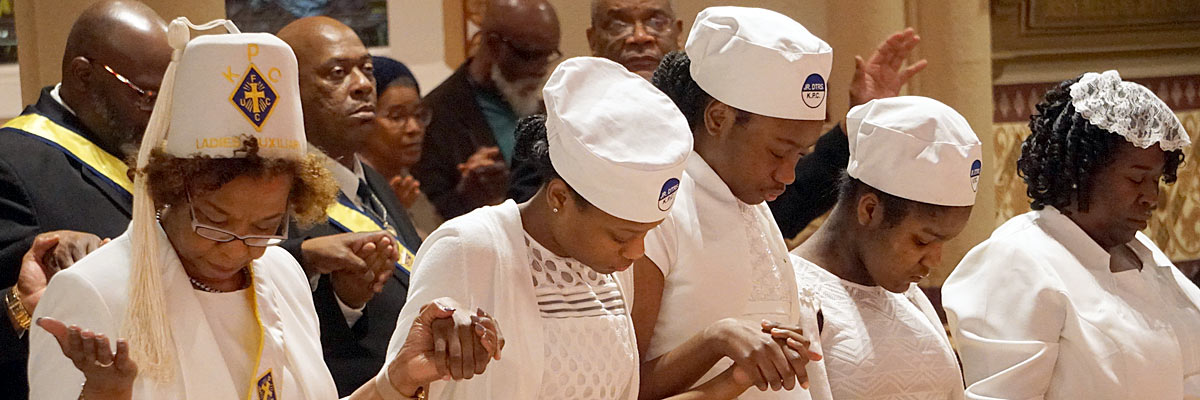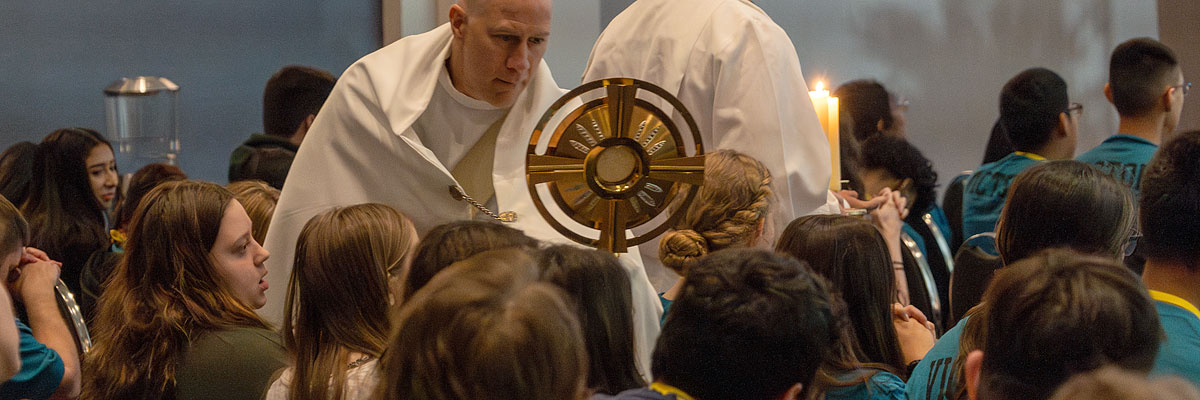Official Website of the
Catholic Diocese of Little Rock
16th Sunday in Ordinary Time, Year A
Published: July 19, 2014
Bishop Anthony B. Taylor preached the following homily at the Cathedral of St. Andrew in Little Rock on July 19-20, 2014.
Download MP3 file to your device

Bishop Taylor
There is a great story about Mundelein Seminary in Chicago. When they sent the building plans to Rome for approval, they came back with the words: "Sunt ne angeli?" ("Are they angels?") written on the plans. They had forgotten to put restrooms in the school. That's why all the plumbing there is an afterthought, accessed off the outside stairwells!
We are not angels and never will be: angels are spiritual beings with wills fully conformed to that of God. We are physical beings with stubborn, independent wills. We don't merely inhabit a body like angels do temporarily in order to be seen by us; we are our bodies — they are part of who we are. The Apostles Creed says we believe in the resurrection of the body: both body and soul — our whole self — goes to heaven. Jesus came to save not only all people, but also the entire person. And boy are we a mixed bag of desires, emotions and needs. In today's Gospel Jesus says that the Kingdom of God is like a field containing both weeds and wheat. If we recklessly pull up all the weeds we risk destroying the wheat, so we should be tolerant for now. When the harvest comes, the Lord will sort it all out.
It is easy for us to become frustrated with the evil we see in today's world. Unfortunately, this causes some people to over-react and fall into that heresy known as "angelism," which assumes that the world is evil in itself and thus beyond redemption — despite the fact that when creating the world, God declared it to be good and the humans he created to be very good. When Adam and Eve sinned, the world was broken by sin and thus in need of redemption, but not rendered evil in itself.
When Adam and Eve sinned, the world was broken by sin and thus in need of redemption, but not rendered evil in itself.
We see the distortion of angelism for instance in the reaction of some who are troubled by the call of Vatican II and recent popes, including Pope Francis, that we should work to solve the problems of this world — in addition to avoiding sin and preparing for the next life. Angelism looks good on the surface because it appears to be the pursuit of purity in all things .. .and let me be clear: confusion regarding the sins of the flesh is a very grave problem in today's world, about which the Church must speak clearly. But the Gospels also teach that even here we still must be compassionate: "but for the grace of God, there go I!"
The point is that while healthy spirituality rejects sin but still loves the sinner, angelism rejects both the sin and the sinner — which can lead to self-hate and scrupulosity because even these people know they are sinners. The mystery of the incarnation, is that when God became man in Jesus, he took on not only a body, but also the full human condition with all of our contradictory needs, emotions and desires — like us in everything but sin.
Jesus embraced the full reality of what it is to be a psychologically healthy person, so even when challenging notorious public sinners to live a moral life, he was still far more tolerant of those who fail than of those who reject. He readily forgave repentant sinners but condemned the unrepentant self-righteous. He welcomed adulterers and prostitutes, telling them to sin no more, but rejected the unforgiving, religious elite. He expelled demons, but couldn't reach those who thought they were angels. We are not angels and never will be. We are physical beings and our psyches will become distorted in unhealthy ways if the healthy paths to holiness are cut off.
Jesus' major concern in the Gospels was charity, hence today's parable of the weeds among the wheat. Here Jesus turns his attention to those weeds in ourselves, in others and in the community which unfortunately, for the time being, cannot be pulled up without also destroying the wheat as well. In these cases we should speak the truth clearly and with charity, and then be patient, putting our trust in God's love.
The content of this parables is summarized nicely in the Serenity Prayer: "God grant me serenity to accept the things I cannot change" (tolerate the weeds among the wheat) "courage to change the things I can" (work to solve the problems of this world) "andthe wisdom to know the difference." Ambiguity tolerance is fundamental for a healthy spiritual life. When the harvest comes, God will sort it all out.






